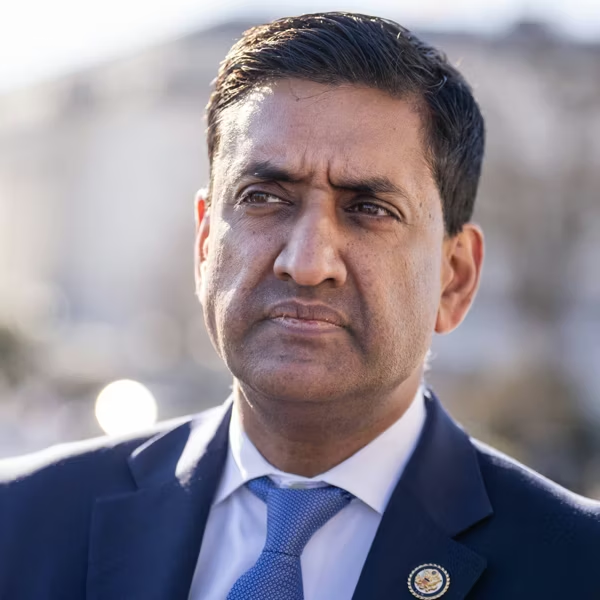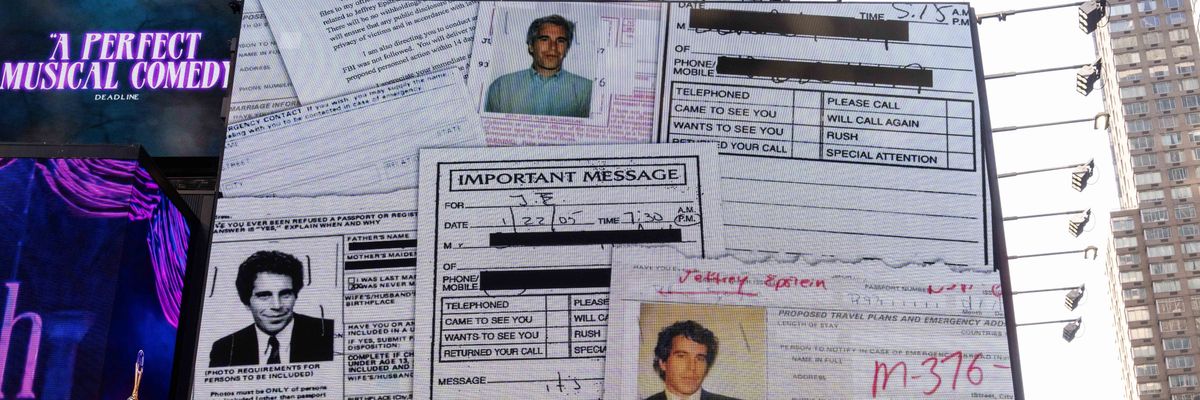After its near-unanimous approval in Congress and following months of sustained public pressure, President Donald Trump signed a law on Wednesday releasing the fil
The law is called the "Epstein Files Transparency Act," but critics fear that a key provision could allow the US Department of Justice to keep critical information from coming to light.
The law requires Attorney General Pam Bondi to "make publicly available in a searchable and downloadable format all unclassified records, documents, communications, and investigative materials" related to the investigations into Epstein and his partner and coconspirator Ghislaine Maxwell within the next 30 days.
But critically, it gives Bondi expansive power to redact large amounts of information, potentially burying material that may be incriminating to the president, whose relationship with the disgraced financier has become the subject of greater speculation with each new set of documents released.
One provision allows Bondi to redact documents to strike information that "would jeopardize an active federal investigation or ongoing prosecution." Last week, Trump ordered Bondi to open investigations into Epstein's connections with several prominent Democrats: Among them are former President Bill Clinton, former Treasury Secretary Larry Summers, and Democratic donor Reid Hoffman.
Lawmakers have raised fears that these investigations were enacted to give Bondi greater leeway to scrub information from the record. On Monday, Rep. Thomas Massie (Ky.), the law's Republican cosponsor, warned that the DOJ "may be trying to use those investigations as a predicate for not releasing the files."
But another largely overlooked section may give her even more sweeping authority. The law states that information may also be redacted "if the attorney general makes a determination that covered information may not be declassified and made available in a manner that protects the national security of the United States, including methods or sources related to national security." It also allows her to redact information deemed "to be kept secret in the interest of national defense or foreign policy."
While the law requires Bondi to issue a written justification for each piece of redacted information and also clarifies that no file shall be "withheld, delayed, or redacted on the basis of embarrassment, reputational harm, or political sensitivity, including to any government official, public figure, or foreign dignitary," it does not define the criteria Bondi must use to determine whether something is in the interest of America's "national security," "national defense," or "foreign policy."
"One glaring loophole will prevent full transparency: It’s called national security," wrote independent journalist Ken Klippenstein Monday, as the House moved toward a vote on the files. "Not national security that has anything to do with the national defense or harm to the nation, but the self-serving kind that protects the system from the people by depriving them of information."
There are many cases in recent memory of the US using national security as a justification to withhold information from the public. Earlier this year, the Trump administration used its "state secrets" privilege to deny a judge's request to turn over information related to its extrajudicial deportation flights to El Salvador, arguing that it would compromise its diplomatic relations with that country. Meanwhile, past administrations have used national security to justify keeping the public in the dark about everything from the military's use of torture to the government's mass surveillance of American citizens.
While the primary interest in Epstein surrounds his alleged role in facilitating a sex trafficking ring for the political and economic elite, there are clear cases where the government could attempt to use national security as a justification to keep information hidden.
For example, recent documents have revealed the extent of his involvement with foreign intelligence and dealmaking. Drop Site News has reported extensively on Epstein's long history working as an informal fixer for former Israeli Prime Minister Ehud Barak to secure deals with several foreign nations that benefited Israel and attempted to shape global politics, including in the United States, to its interests.
Klippenstein has also raised concerns about the inclusion of the word "unclassified" in the bill, which he noted "is an official word that in theory only exists when it comes to national security matters; that is, that the release of such information could cause 'harm' to national security."
He said he asked Massie and the law's Democratic cosponsor, Ro Khanna (Calif.), for comment on why that word was included at all since the law does not relate to national security. Neither responded.
But Massie told journalist Michael Tracey back in September that a similar provision to redact info related to “national defense” was included because, "You have to put that in there if you’re going to get them to sign it."
House Speaker Mike Johnson (R-La.), who fought against the release of the files until the bitter end but ultimately voted for the bill along with all but one member of the House, invoked what he called "national security concerns" in a last-ditch effort to stop the discharge petition that brought the Epstein bill to the House floor.
It echoed what Bondi herself said back in March when asked on Fox News why any information besides victims' names would need to be stricken from the record: "Of course, national security."
"If large sections of the files remain redacted or withheld, the public may face a truncated version of 'transparency,' one that protects many of the powerful rather than exposes them," wrote independent journalist Brian Allen. "This is not just a story about Epstein. It is a stress test of our system of accountability."




